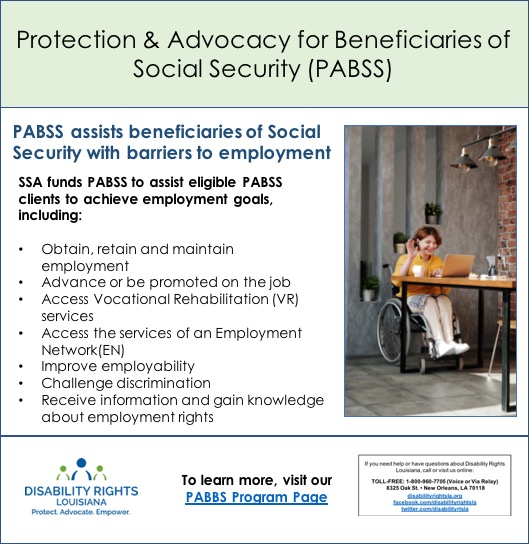Protection & Advocacy for Beneficiaries of Social Security (PABSS) assists beneficiaries of Social Security with barriers to employment.
Specifically, PABSS:
- helps beneficiaries draft and submit complaints regarding disability discrimination to the Equal Employment Opportunity Commission
- reviews and investigates allegations of employment discrimination, programmatic access issues, and other barriers to employment.

More Details:
PABSS can review any issues that are a barrier to employment to determine if advocacy or legal services can be provided.
Sheltered employment, also sometimes called 14c employment because of the section of the law where it is found, allows employers to pay employees with disabilities less than minimum wage under certain conditions.
The focus of Disability Rights Louisiana’s sheltered employment monitoring is to assess whether employees in sheltered employment are being paid their appropriate hourly wage under 14c policy.
